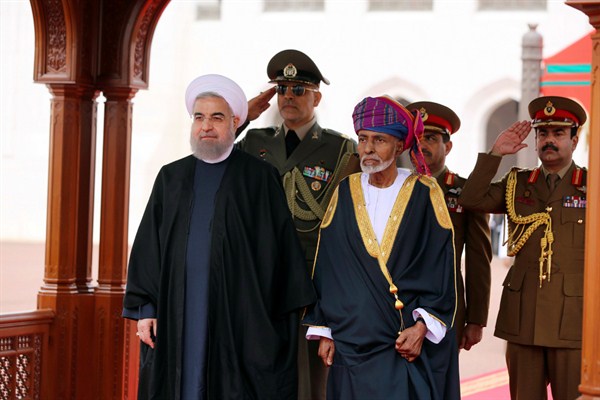Since the collapse of world oil prices in 2014, the wealthy Arab monarchies in the Persian Gulf have all faced difficult times, but especially Oman. Last month, things got even worse when Standard & Poor’s downgraded Oman’s credit rating to junk status over concerns with the country’s budget and revenue prospects as oil prices stay low.
After recording average budgetary surpluses of 9.7 percent of GDP in the 2000s, Oman has seen fiscal deficits of 1.1 percent of GDP in 2014, 15.1 percent in 2015 and 20.6 percent in 2016. Unless oil prices increase significantly, the country will face the unpleasant prospect of limited borrowing ability, slowing rates of economic growth, rising levels of unemployment and increased domestic unrest not seen since 2011, when the uprisings across the Arab world led to the first sustained protests in Oman in decades.
These current economic woes represent a marked departure from years of sustained growth and rising standards of living in the sultanate that spans the eastern tip of the Arabian Peninsula. Oman was designated the only Arab “success story” by the World Bank’s vaunted Commission on Growth and Development. It was one of only 13 countries worldwide that grew at an average rate of 7 percent or higher for 25 years or longer—in its case, from 1960 to 1999. Along with Bahrain, it was one of only two states in the region singled out by a parallel U.N. study of successful developing countries. In all, Oman seemed to be in the enviable position of having a visionary leader, Sultan Qaboos, with just enough oil at his disposal to do some good—but not enough to risk succumbing to the resource curse.

